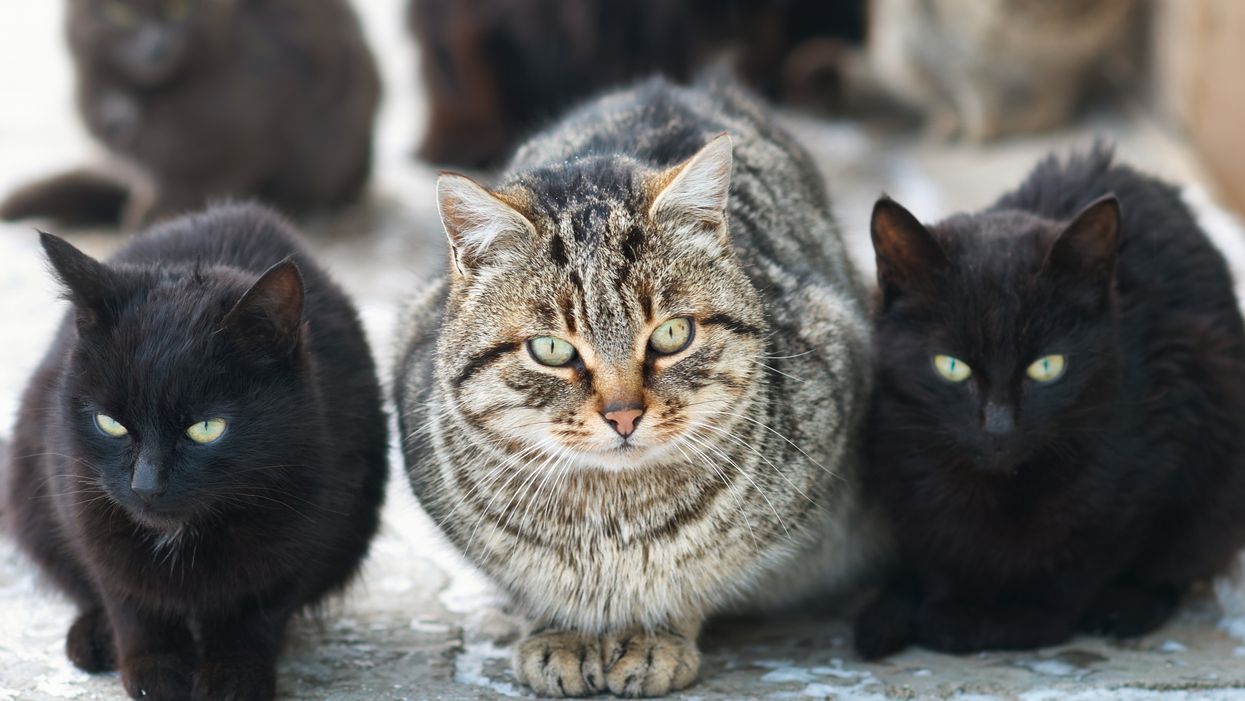The Pandemic Is Having An Impact On The Cats Of Montreal Too
Data from the Montreal SPCA reveals a-paw-ling new details on how the pandemic is affecting the province’s stray cat population.
The number of cats spayed or neutered by the Montreal SPCA dropped by about 27% this year, according to executive director Élise Desaulniers.*
The data — obtained from the organization’s Trap-Neuter-Release-Maintain (TNRM) Program — shows the Montreal SPCA spayed and neutered 921 cats from January 1 to November 10, 2020, compared to 1,268 during the same period last year.
That’s because the program was suspended when the first wave of the pandemic hit from March 26 to May 25.
Desaulniers is quick to point out, however, that the brief interruption to the TNRM program has not undone all the efforts made by the SPCA over the years.*
Since reopening, the SPCA has had to manage intakes by appointment and reduced the number of spay and neuter surgeries by 30% each day to maintain social distancing.
The numbers arrive several weeks after Diane Liebling, the chair of the Côte Saint-Luc Cats Committee, told MTL Blog that stopping the city’s spay-and-neuter programs — leaving the feline sex-maniacs to bump uglies in the night — was yielding “an explosion of kittens.”
They also come just a few days after the SPCA launched its annual year-end fundraising campaign. From now until December 31, each donation made to the Montreal SPCA will be matched, thanks to the generosity of the Bryant-Mapes Fund.
Editor's Choice: The Montreal Ritz-Carlton's Toy Donations Post Went So Viral They Had To Change It
How do we solve the cat purr-oblem?
Cats are a-meow-zing procreators. One female can produce three litters of at least four kittens a year, according to the SPCA.
To save them from mew-serable lives on the streets, Desaulniers said the city should implement a comprehensive program with all boroughs to spay and neuter 60 to 90% of the stray cat population.
"Doing trapping here and there," she explained, "is probably not an efficient end because we take away the competition while leaving the resources (new cats settle in, bigger litters, etc.)."
Blame the housing crisis for the cat problem
Another reason there are pussies galore in Quebec is the housing crisis, said Desaulniers.
"When the landlords get 20, 25, or 50 applications for the same apartment, they will probably choose the person who has a good job, they will probably choose a family without kids and they will probably choose a family without animals," she told MTL Blog back in July.
People leave their cats behind when they can’t find affordable and pet-friendly housing, she explained.
As a consequence, over a hundred distressed families contacted the Montreal SPCA in June because they were unable to find affordable housing in a pet-friendly building.
According to Statistics Canada and the Canada Mortgage and Housing Corporation, Montreal's vacancy rate stood at 1.6% in 2019
How is the Montreal SPCA keeping up with demand?
Despite international reports of soaring demand for pets due to people trapped at home wanting furry friends to fill the void, adoptions have actually decreased at the Montreal SPCA since the start of the pandemic and Desaulniers believes it’s due to logistics.
“Our adoption process is not the same as before,” she said. “People used to simply come and adopt an animal if they met one they liked. Now everything is upon appointment."
The Montreal SPCA adopted out 2,179 pets from March 1 to October 31, 2020, compared to 3,291 during the same period last year, she said.
“Like everything else during this pandemic, things are a bit more complicated. Readers have to be patient and understand we cannot have big adoption events like we used to or very busy days with dozens of people lining up to adopt,” she said.
“We also have to be careful about how many animals we take in to make sure we can get them new families quickly and not overcrowd the shelter.”
Desaulniers said people looking to adopt should join Facebook groups where a lot of cats are looking for a new family.
“Healthy and sterilized cats do not necessarily have to come to a shelter to find a new family,” she said.
“There are a lot of great stories of people simply adopting from their neighbours or friends.”
This article's cover image is used for illustrative purposes.
*This article has been updated.

